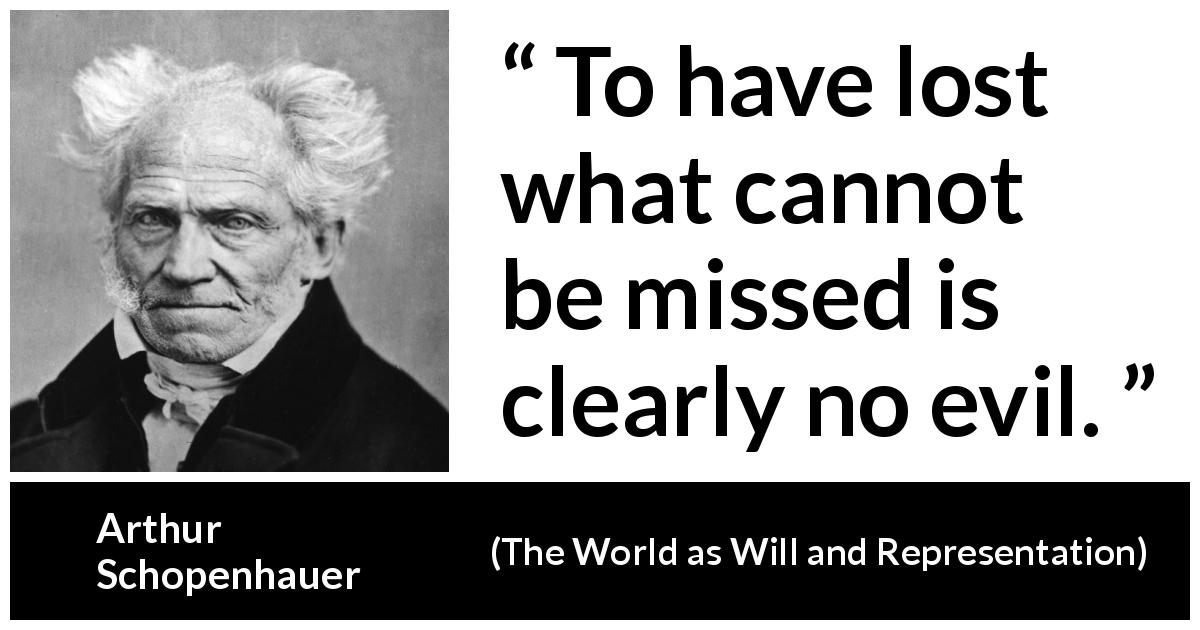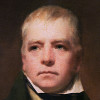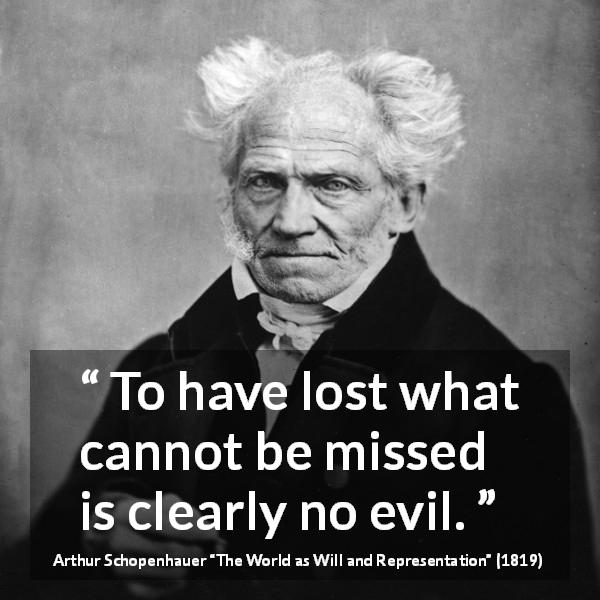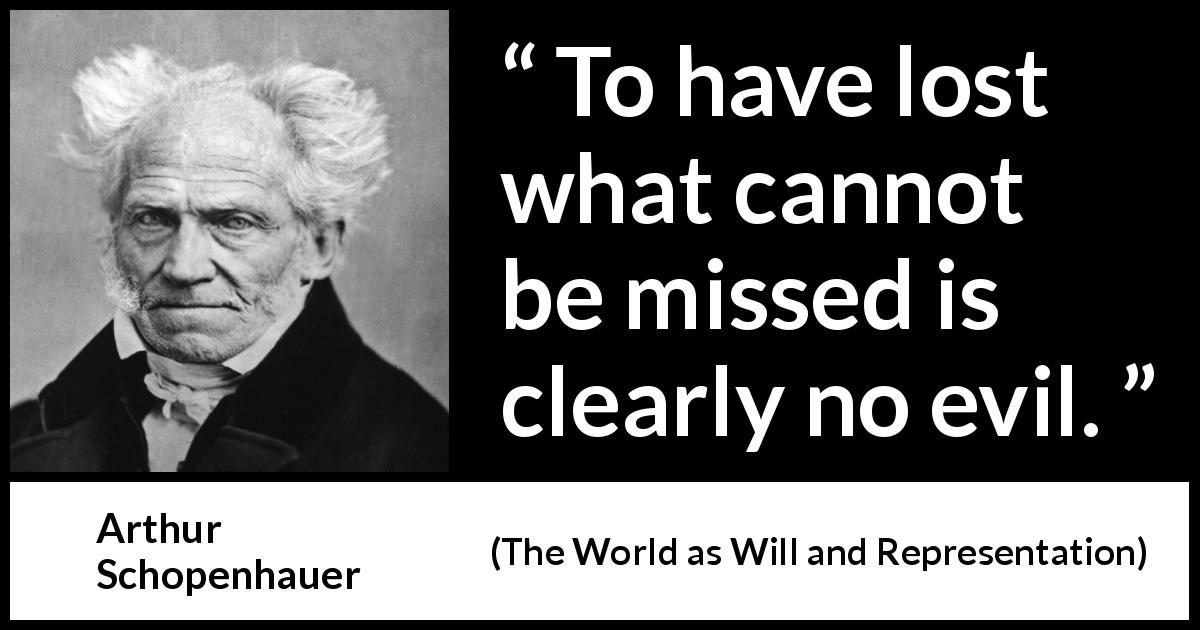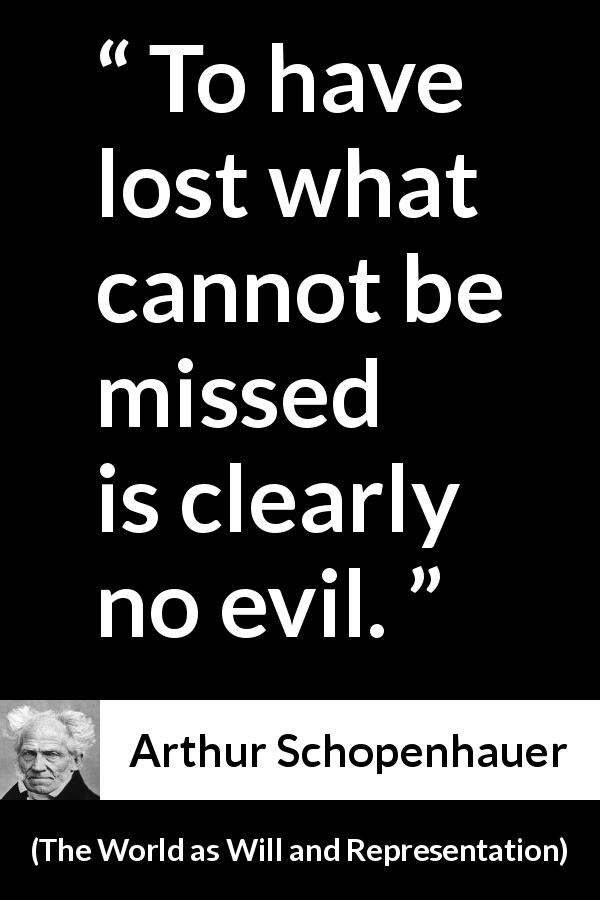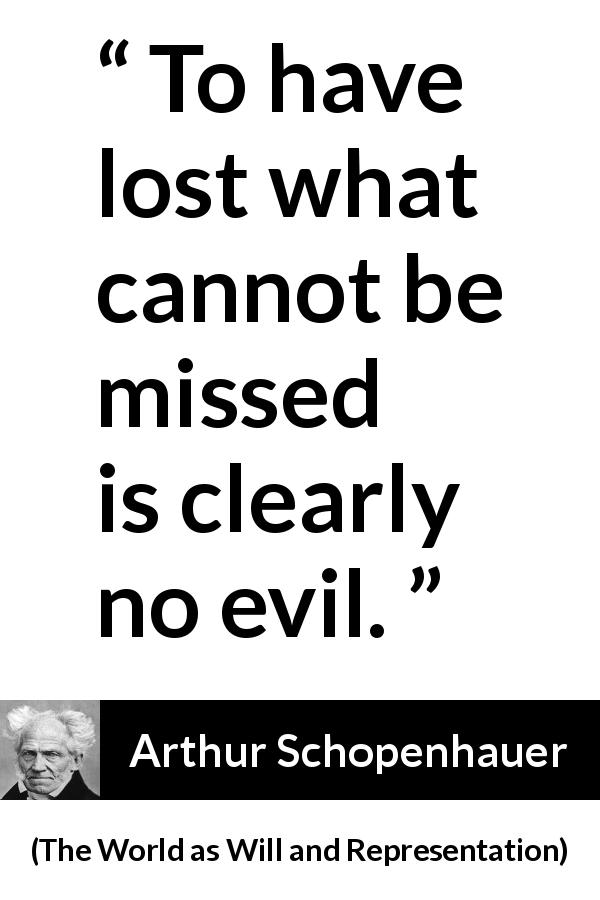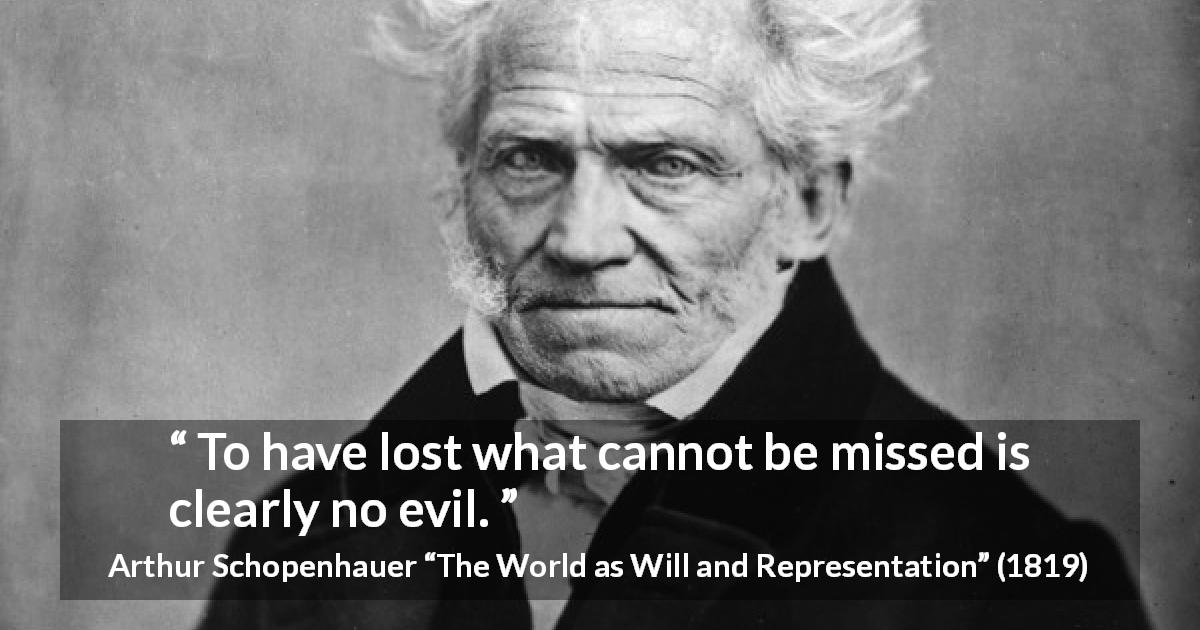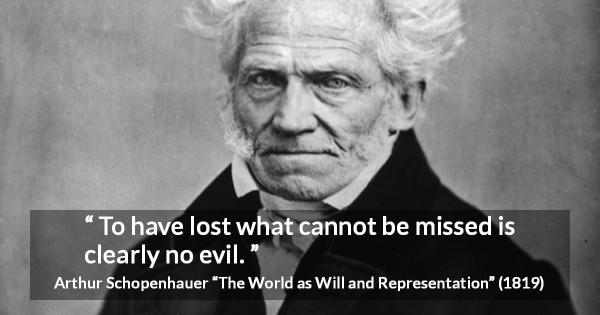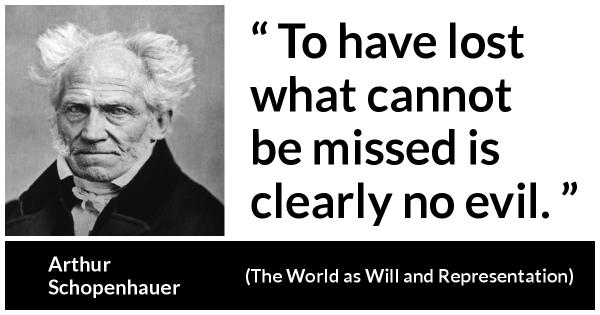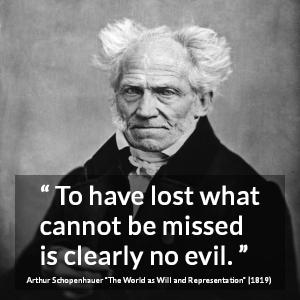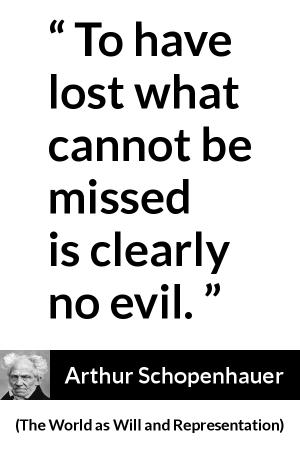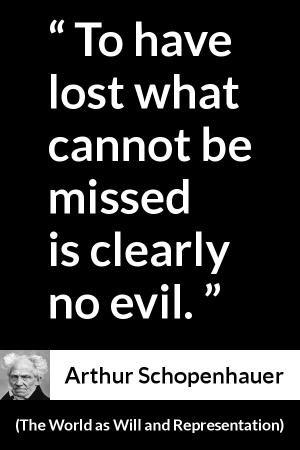“ To have lost what cannot be missed is clearly no evil. ”
Arthur Schopenhauer, The World as Will and Representation (1819). copy citation
| Author | Arthur Schopenhauer |
|---|---|
| Source | The World as Will and Representation |
| Topic | evil loss miss |
| Date | 1819 |
| Language | English |
| Reference | |
| Note | Translated by R. B. Haldane and J. Kemp |
| Weblink | http://www.gutenberg.org/files/40868/40868-h/40868-h.html |
Context
“From this point of view Epicurus considered death, and therefore quite rightly said, «ὁ θανατος μηδεν προς ἡμας» (Death does not concern us); with the explanation that when we are death is not, and when death is we are not (Diog. Laert., x. 27). To have lost what cannot be missed is clearly no evil. Therefore ceasing to be ought to disturb us as little as not having been. Accordingly from the standpoint of knowledge there appears absolutely no reason to fear death. But consciousness consists in knowing; therefore, for consciousness death is no evil.”
source
